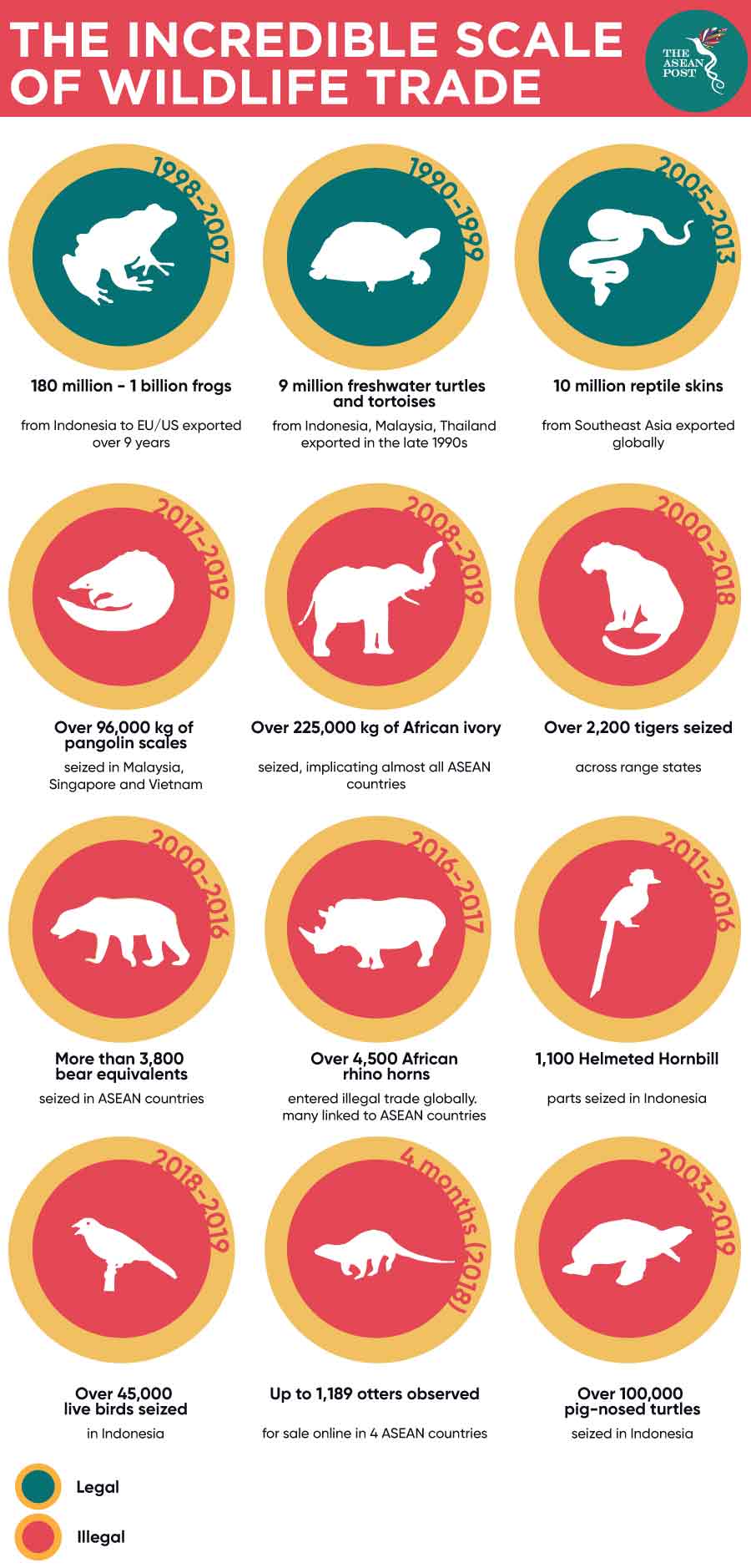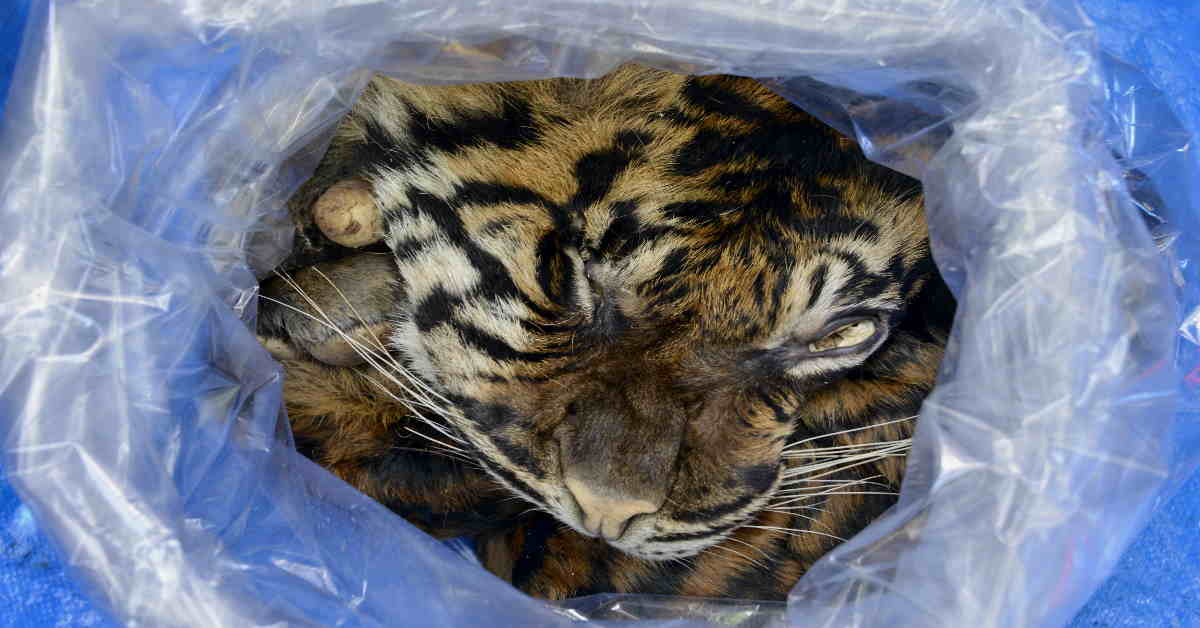In a statement by the World Wildlife Fund for Nature (WWF), the current emergence and spread of the COVID-19 coronavirus, as well as SARS, MERS and other similar virus outbreaks in recent history, underscores the need to take urgent action and raise awareness of the potential threats to human health posed by the illegal and unregulated trade in wildlife.
The WWF welcomed the Chinese government's decision to temporarily ban the sale of wildlife in markets, restaurants and online platforms.
The United Nations Office of Drugs and Crime (UNODC) estimates that the global wildlife trafficking industry is worth between US$7 billion and US$23 billion, annually. Illegal markets for live and dead wild animals are common across many Asian countries, especially in areas such as the Greater Mekong’s Golden Triangle where Lao, Thailand and Myanmar meet close to the Chinese border.
Not only are these illegal activities threatening wildlife; the absence of any veterinary controls makes them a threat to the health of both, people and domestic animals, with the potential to significantly impact communities and economies, both locally and globally.
According to the WWF, the COVID-19 virus that is causing the current outbreak is a zoonotic disease, meaning it can transfer from animals to humans. The virus has the potential to mutate and infect humans by jumping the species barrier in places where people come in close contact with infected animals.
The Wildlife Conservation Society has noted however, that the trade ban does not include fur, medicine or research. “This creates a potential loophole for traffickers who may exploit the non-food exemptions to sell or trade live wildlife,” the group said in a statement.
Furthermore, traditional Chinese medicine (TCM) – which has a long history of using animal ingredients – is a key pillar of China’s Belt and Road Initiative (BRI), and remains a profitable incentive to keep the trade alive.

Will China take a stand?
The virus has certainly put a spotlight on China's poorly regulated trade in wildlife – driven by a relentless demand for exotic delicacies and ingredients for traditional medicine.
After the outbreak of Severe Acute Respiratory Syndrome (SARS), China tried to improve the way the animal trade is regulated. At the same time, authorities have tried to curb the poaching of exotic species and has a long list of officially protected wildlife.
However, efforts were soon abandoned when Beijing lifted a ban on the sales of 54 species in 2003 –just four months after it was imposed, after which a man from Guangdong contracted the virus and the destruction of 10,000 civet cats, badgers, raccoon dogs, rats, and cockroaches were ordered.
The efforts to protect animals often lose out to generations of tradition.
Activist and policymakers around the globe are taking this opportunity to emphasise the link between the risk of a pandemic and buying and consuming rare wildlife. Although a majority of governments in ASEAN are in agreement that the illegal trade in wildlife should be stopped, the way in which they are going about it might be the wrong approach.
Banning illegal drugs does not diminish its demand in most countries that are battling with drug trafficking, however, countries like Portugal have taken a different approach by decriminalising drug use which has produced better results than a complete ban.
Alternative approaches could be needed for illegal wildlife trafficking too. The banning of the US$26 billion industry with rampant corruption in law enforcement agencies may not be as effective as awareness programs that educate the public on the fatal dangers of consuming rare wildlife –especially now when the fears of COVID-19 are fresh and people are struggling with the lockdown of entire cities.
ASEAN countries must make a stronger commitment towards dismantling the wildlife trafficking network in Asia. The various economic, social, and political disruptions caused by COVID-19 should shed a light on the detrimental effects of consuming wildlife, not to mention the BRI’s plan to promote the use of TCM across 70 countries.
“While demand and supply both fuel wildlife crime, education and public awareness efforts must continue. There is an urgency to stamp out illegal wildlife trafficking along the entire trade chain, from source to destination and we strongly encourage anyone with information on wildlife crime to come forward. By supporting the fight against illegal wildlife trade, we can stop poaching and indiscriminate killing of our endangered wildlife,” said Sophia Lim, WWF-Malaysia’s Chief Executive Officer.
Related articles:
